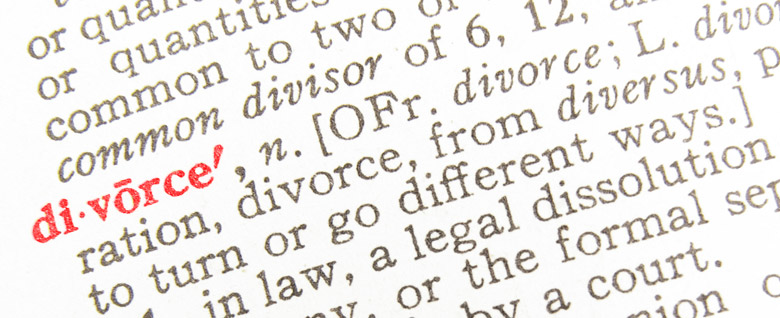How badly does your ex have to behave to justify you getting extra money from them or a bigger share of the assets when you separate?
In many relationship breakdowns - unfortunately – there are allegations and counter allegations about behaviour. I have heard many accounts of unacceptable and unreasonable behaviour. Separation sometimes brings out the worst in people. Sometimes one party, or both, may not have been particularly well-behaved during the relationship, but there have been very few occasions when behaviour has resulted in financial compensation.
We are often asked about behaviour and these can be difficult conversations about the likely outcome because financial compensation is still rare. The court does not award a share in assets to reflect the emotional trauma or physical hurt from a relationship.
The reason for separating are generally considered irrelevant by the courts and this is unlikely influence the sharing of assets. Bad behaviour will not automatically mean your ex gets less. The Family Court is not here to punish – the primary focus is on dividing the assets fairly in accordance with both needs.
Having an ex who has had an affair - and caused a great deal of distress in the process - is not behaviour that is going to be taken into account when dividing assets. Facing someone who has been downright nasty and difficult to deal with is also unlikely to tip the scales in your favour. Bad behaviour needs to cross a threshold and each case will fall on its own merits.
So what is that threshold?
Put simply, the court will only take behaviour into account if it believes it would be ‘unfair’ to disregard it.
The three main categories include financial behaviour (someone getting rid of or depleting assets); non-financial behaviour (e.g. extreme violence); and litigation misconduct during the case (delaying or not co-operating with court orders). Financial and non-financial behaviour can affect the division of assets and litigation misconduct can end up with order for costs.
So far, our judges have not given too much guidance on this matter, but past decisions could shed some light on their thinking.
Financial behaviour is understood to mean situations where marriages have suffered financially, perhaps because one person has had a gambling or suffered drug addiction and got the marriage into significant debt. Or, simply they have racked up a load of debt and not told anyone. We have seen cases where an ex been prevented from claiming a greater share of ‘the pot’ after frittering away assets through extravagant living or reckless. However, the judge will require clear evidence of money being spent - and the amounts - for the appropriate division of assets.
Non-financial conduct in divorce cases is rarer as it is more difficult to substantiate. This sort of behaviour needs to be blatant and grossly unacceptable. Equally, the judge will look at the behaviour of both parties. If both have been behaving in a similar way then they will effectively cancel each other out.
But inflicting serious injury can tip the balance. The conduct does not have to take place during the marriage and in some cases has taken place long after a divorce. For example in 1985, over 30 years after a divorce, the ex-wife was convicted of inciting others to murder her ex-husband. Her ex was paying her maintenance at the time. She wasn’t successful but her ex-husband managed to get an order discharging the maintenance payments with the court stating it would be unrealistic to expect him to continue payments under the circumstances.
In 2002 a father abducted his children, taking them to Saudi Arabia, and refused to allow the wife to have contact. He also refused to reveal the true extent if his assets which made it very difficult for them to be divided fairly. The court took a very dim view of his conduct and took this into account when looking at the assets.
‘Costs Orders’ – where one party is ordered to pay legal costs for the other - are rare in family proceedings, but can be made if there is bad behaviour during the course of litigation. This is often if one former partner has failed to follow orders and rules, meaning that legal costs for the other party have increased unfairly and unreasonably. Essentially, a cost order may be put in place when a party has failed to cooperate in the court process. However, the court will demand that this reimbursement is fair and proportionate. The test for proportionality is not the amount of costs that you have incurred but the lowest amount that would you reasonably be expected to spend if you had good and competent legal advice and representation.
If you believe you have experienced such behaviour, it is important you provide your with as much information as you can, so that they understand the important issues in your case.
It is a complex area and although there is a lack of guidance about behaviour a good solicitor will be able to tell you what is best for you.
By family and divorce solicitor, Mandy Rimmer



Comments